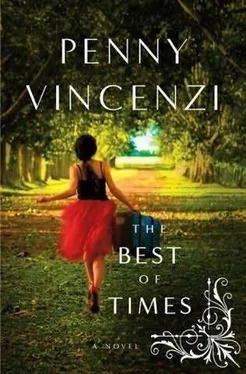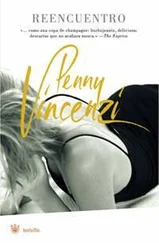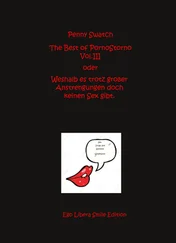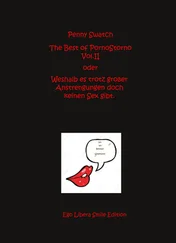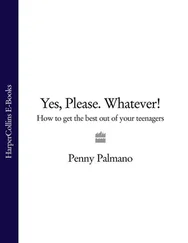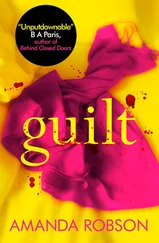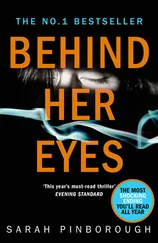Penny Vincenzi - The Best Of Times
Здесь есть возможность читать онлайн «Penny Vincenzi - The Best Of Times» весь текст электронной книги совершенно бесплатно (целиком полную версию без сокращений). В некоторых случаях можно слушать аудио, скачать через торрент в формате fb2 и присутствует краткое содержание. Жанр: Современная проза, на английском языке. Описание произведения, (предисловие) а так же отзывы посетителей доступны на портале библиотеки ЛибКат.
- Название:The Best Of Times
- Автор:
- Жанр:
- Год:неизвестен
- ISBN:нет данных
- Рейтинг книги:3 / 5. Голосов: 1
-
Избранное:Добавить в избранное
- Отзывы:
-
Ваша оценка:
- 60
- 1
- 2
- 3
- 4
- 5
The Best Of Times: краткое содержание, описание и аннотация
Предлагаем к чтению аннотацию, описание, краткое содержание или предисловие (зависит от того, что написал сам автор книги «The Best Of Times»). Если вы не нашли необходимую информацию о книге — напишите в комментариях, мы постараемся отыскать её.
The Best Of Times — читать онлайн бесплатно полную книгу (весь текст) целиком
Ниже представлен текст книги, разбитый по страницам. Система сохранения места последней прочитанной страницы, позволяет с удобством читать онлайн бесплатно книгу «The Best Of Times», без необходимости каждый раз заново искать на чём Вы остановились. Поставьте закладку, и сможете в любой момент перейти на страницу, на которой закончили чтение.
Интервал:
Закладка:
She had been wonderfully surprised when Russell continued to write to her; he had done so almost as soon as he arrived back in the States.
“I want us still to be friends, Mary,” he had said. “I can’t face life totally without you, even if I can’t be with you.”
She had agreed to that, of course: what harm in letters? Nobody could object to that, think it was wrong. And the letters had flown back and forth across the Atlantic ever since.
He had sent pictures: first of himself and his very grand-looking parents and their very grand-looking house, and later, as time passed and wounds healed and lives inevitably progressed, of his bride, Nancy; and she had written of her marriage to Donald and sent pictures of the two of them on their wedding day, and of the little house they had bought in Croydon. And later still, they exchanged news and photographs of their babies, her two and Russell’s three, and sent Christmas and birthday cards to each other. Donald had never known; she had seen no reason to tell him. He wouldn’t have believed that Russell had been only a friend, and he would have been quite right not to believe it either.
The letters arrived about once a month, usually after Donald had gone to work. If one did happen to arrive on a Saturday, and he saw it, she would say it was from her American pen-friend. Which was true, she told herself. He was. In a way.
Russell’s stories of splendid houses and Cadillacs and swimming pools were clearly true; his parents were rich, with an apartment in New York and a house somewhere called Southampton, full of big houses, and people played polo there and sailed on the ocean in their yachts. He and Nancy spent every weekend at the Southampton house.
It had been a happy marriage, as far as Mary could make out; as hers to Donald had been. But Nancy had died when she was only fifty-two, of cancer, and Russell had married again, to a woman called Margaret. Mary had been absurdly comforted when Russell told her it was only so the family had a mother figure.
Donald had died on his seventy-fifth birthday, had had a heart attack while the house was full of his beloved family. He had been a wonderful husband; he had never made much money, had worked away perfectly happily at his job in an insurance company, and had no ambitions to change it.
As long as he could come home every night to Mary and the children, he said, and knew he could pay all the bills, he was content.
She had kept all Russell’s letters, and photographs, safely hidden in her underwear drawer, tucked into an empty packet of sanitary towels; Donald would no more look in there than fly to the moon. And every so often, she would get them out and relive it all, the wonderful, passionate romance that had led to a lifetime of secret happiness.
And then last year, Russell had written to tell her that Margaret had died. “She was a very loving wife and mother and I hope I made her happy,” he wrote. “And now we are both alone, and I wonder how you would feel if at last we were reunited? I’ve been thinking of making a trip to England and we could meet.”
He had been over occasionally on business-she knew that-but of course they had never met.
Mary’s initial reaction had been panic; what would he actually think, confronted by the extremely ordinary old lady she had become? He was so clearly used to sophistication, to a great deal of money, to fine birds in very fine feathers; she was indeed his “Little London Sparrow,” the name he had given to her all those years ago. And all right, she lived in a very nice house on the outskirts of Bristol, where she and Donald had moved when he had retired, to be near their beloved daughter, Christine, and her family, and she had a few nice clothes, and she had kept her figure; she was still slim, so if she did get dressed up she looked all right. But her very best outfits came from Debenhams, the everyday ones from Marks & Spencer; her hair was grey, of course, and a rather dull grey at that, not the dazzling white she had hoped to inherit from her mother; and she had very little to talk about: her most exciting outings were to the cinema, or playing whist or canasta with her friends. And Russell spent a lot of his life at things called “benefits,” which seemed to cover all sorts of exciting events: theatrical, musical, even sporting. Whatever would they talk about?
But he had rejected her argument that they might spoil everything if they met again now-“What’s to spoil? Only memories and no one can hurt them”-and gradually persuaded her that a rendezvous would be at worst very interesting and fun, and friendship “at best wonderful.”
“I want to see you again, my very dear Little Sparrow. Fate has kept us apart; let’s see if we can’t cheat her while there is still time.”
It hadn’t been fate at all, as far as Mary could see; it had been her own implacable resolve. But gradually she came round to feeling that she would greatly regret it for whatever was left of her life if she refused.
And so she had written to tell him so, and that he should go ahead and make the arrangement for his visit-“ideally at the end of August.”
Which was only a few weeks away.
On that same morning, Linda received a phone call from an independent production company; they were casting a new six-parter for Channel Four, a family-based psychological thriller.
“Very meaty, very raw. We need a young black girl. Obviously pretty, but cool as well, properly streetwise. First casting in three or four weeks’ time. If you’ve got anyone, e-mail a CV and some shots.”
Linda did have someone, and she sent her details over straightaway.
She’d had Georgia Linley on her books for just over a year, and she was beginning to think it was a year too many. OK, she was gorgeous and very, very talented; Linda had picked her out from a large cast at an end-of-year production at her drama school, put her through her paces, and taken her on. Since then it had been an uphill struggle. Georgia had not only been something of a star at college, and hated the crash down into bit parts and commercials; she was also extremely impatient and volatile. After every failed audition, she would turn up at the agency and weep endlessly, bewailing her own lack of talent combined with her bad luck, and Linda’s inability to help her or even understand the idiocy and blindness of the casting director she had just been to see. Linda was initially patient and was very fond of her, but a year on and she actually dreaded her phone calls.
Of course, Georgia had problems-“issues,” as the dreadful expression went-about her colour, about the fact she was adopted, about her hugely successful, brilliant brother. But as Linda had tried to persuade her many times, none of those things were exactly professional drawbacks.
“There are dozens of successful black actors these days-”
“Oh, really? Like who?”
And, of course, there weren’t. There was Adrian Lester and there was Sophie Okonedo and Chiwete Ejiofor… and after that the list tailed to a halt. Dancers, yes, singers, yes, but not actors. She had tried to persuade Georgia to go for some chorus parts in musicals, but she wouldn’t hear of it.
“I’m a lousy dancer, Linda, and you know it.”
“ Georgia, you’re not! Maybe not Covent Garden standards, but extremely good, and you’ve got an excellent singing voice, and it’d be great experience; you’d almost certainly have got a part in Chicago , or that revival of Hair, or-”
“Which folded after about three days. Anyway, I don’t want to be a dancer. I want to act. OK?”
She still lived at home, in Cardiff, with her adoptive parents. Her father was a lecturer at Cardiff University, her mother a social worker: charming, slightly hippie middle-class folk, unsure how to manage the ambitions of the beautiful and brilliant cuckoos in their nest. Their other child, Michael, also black, blacker than Georgia, who was actually mixed-race-a fact that added to her neuroses-was five years older than she was, a barrister, doing well in a London chambers; he had gone to Cambridge and was acknowledged as extraordinarily clever.
Читать дальшеИнтервал:
Закладка:
Похожие книги на «The Best Of Times»
Представляем Вашему вниманию похожие книги на «The Best Of Times» списком для выбора. Мы отобрали схожую по названию и смыслу литературу в надежде предоставить читателям больше вариантов отыскать новые, интересные, ещё непрочитанные произведения.
Обсуждение, отзывы о книге «The Best Of Times» и просто собственные мнения читателей. Оставьте ваши комментарии, напишите, что Вы думаете о произведении, его смысле или главных героях. Укажите что конкретно понравилось, а что нет, и почему Вы так считаете.
